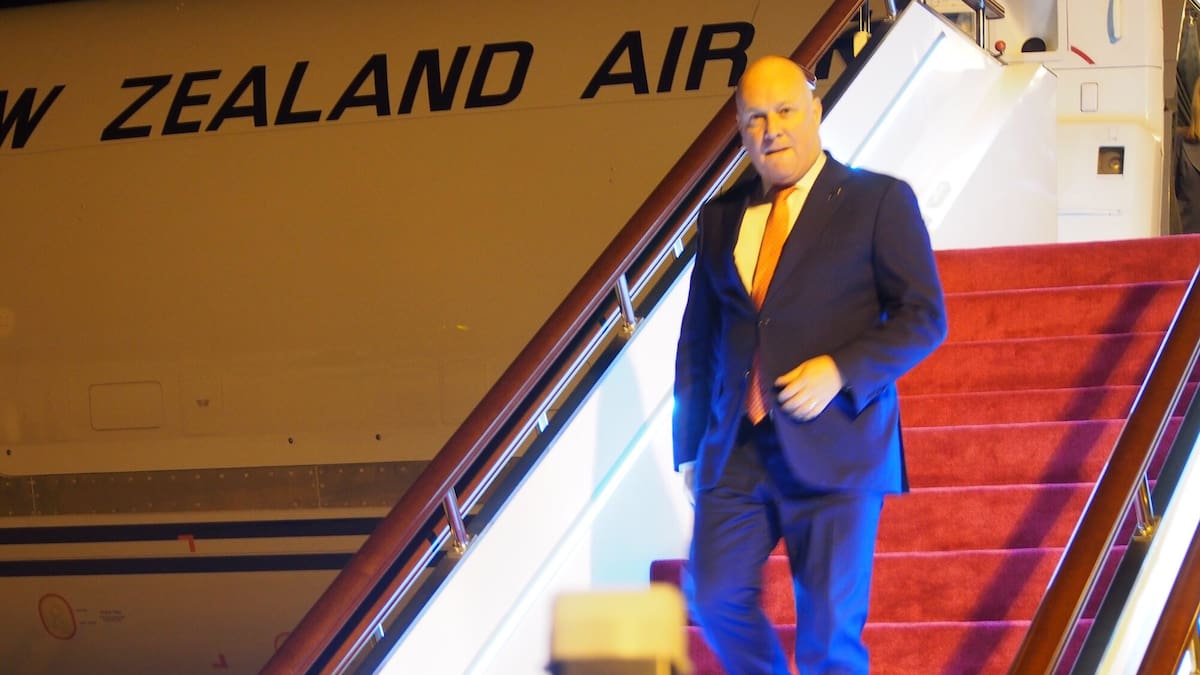But at least
on international trade the rubber hits the road.
In Auckland yesterday, European Union Trade Commissioner Maroš Šefčovič was in the right place to deliver praise where it is warranted.
New Zealand has just five million people. But it does have agency in global affairs – a point that has been made by successive New Zealand Prime Ministers, including Christopher Luxon.
Šefčovič heaped generous praise on the Prime Minister at the European Union business summit, thanking him for promoting a pathway where the 27-strong European Union and the 12 members of the Comprehensive and Progressive Agreement for Trans-Pacific Partnership (CPTPP) could combine to strengthen the rules-based trade order.
Hark back to April 1, the so-called “Liberation Day”, where the economic stakes were raised for this small economy.
When President Donald Trump announced a 10% tariff on imports from New Zealand into the United States, Luxon sprang into action.
He called EU President Ursula von der Leyen to make the case for the European trade bloc and the more loosely defined CPTPP to join forces to uphold the ethos underpinning the World Trade Organisation (WTO) framework. Speaking with this columnist before the summit, Luxon recalled he spoke with von der Leyen about the various trade groupings – the EU, CPTPP and Association of Southeast Asian Nations (Asean) – and suggested a dialogue.
The proposal was put on the agenda at their June meeting in Brussels.
It is a mark of Luxon’s growing political maturity in global geopolitics that he made the crucial personal connection with von der Leyen and was successful in his advocacy.
The idea had been washed around before. Notably, behind the scenes by Trade Minister Todd McClay, whom Šefčovič included in his remarks, and by our talented trade diplomats.
“I have to thank Todd and the Prime Minister for bringing this idea of EU working closer with the CPTPP,“ Šefčovič said.
“Showing that such a big group of countries representing 30% of global GDP wants to respect the rules, wants to work on military, wants to be fully respectful of international trade law, is very important.”
Šefčovič and McClay are in Queenstown today for the inaugural NZ-EU Trade Committee meeting. This has a strong focus on making the most of the bilateral free trade agreement (FTA) between New Zealand and the EU, which went into force in May 2024.
The EU is an important trading partner for New Zealand, both for exports and imports. Two-way goods and services trade between New Zealand and the EU was worth $21.58 billion in the year to June 2025, with New Zealand exports having increased by $2b since the FTA came into effect last year.
But the global trade environment will also dominate.
Importers of New Zealand goods now face a 15% tariff.
They will talk further on strategies to bring the EU and the CPTPP closer together at next month’s meeting of the CPTPP Commission in Australia. Australian Trade Minister Don Farrell has invited Šefčovič. McClay is there as of right.
Shared values and strengthened defence ties are part of the picture.
Luxon earlier talked with me about how he and von der Leyen were cut from the same cloth politically as members of centre-right parties and connected well.
When he joined the Nato meeting in June representing New Zealand as a member of the Indo-Pacific Four, he was impressed that the member states agreed to increase their defence commitments to 5% of GDP. He said there was a real sense of pride that they’d broken through and that was a great success.
“I think Ukraine’s been very mobilising … I sit in on the Coalition of the Willing calls.”
Tomorrow Luxon departs for the East Asia Summit, where he will this time promote the benefits of the 10 Southeast Asian nations joining the burgeoning CPTPP-EU dialogue. Put Asean together with CPTPP and the EU, and close to 40% of global trade will be covered.
He will then travel to South Korea for the Apec Economic Leaders’ Meeting, which will this year be held in Gyeongju – all eyes will again turn to Trump.
New Zealand is strengthening its defence and security ties with the US.
But when it comes to trade, New Zealand is strengthening its relationships with other big players.
Catch up on the debates that dominated the week by signing up to our Opinion newsletter – a weekly round-up of our best commentary.

